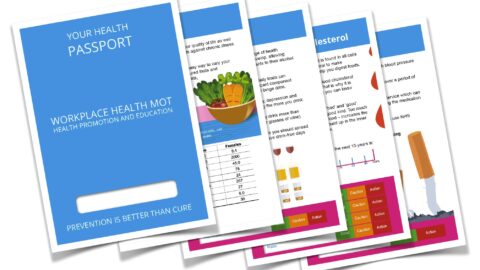
Stress is an inevitable part of life. However, when stress becomes chronic, it can significantly impact an employee’s health, productivity, and overall well-being. As a manager, it’s crucial to recognise the signs of stress in your team and take proactive steps to manage it. Not only does this promote a healthier work environment, but it also enhances overall team performance and job satisfaction.
Recognising the Signs of Stress
Stress manifests differently in everyone, but there are some common signs that managers should be vigilant about:
1. Changes in Behaviour:
Noticeable changes in an employee’s behaviour, such as irritability, withdrawal from social interactions, or frequent mood swings, can indicate stress.
2. Decline in Work Performance:
A drop in productivity, missed deadlines, or an increase in errors may be signs that an employee is struggling to cope.
3. Physical Symptoms:
Employees may report headaches, fatigue, or frequent illnesses, which can be physical manifestations of stress.
4. Absenteeism:
An increase in sick days or unexplained absences may indicate that an employee is feeling overwhelmed.
5. Unhealthy Eating, Drinking, or Smoking Habits:
Employees who are stressed may turn to unhealthy coping mechanisms, such as increased consumption of junk food, alcohol, or cigarettes. These habits can further exacerbate stress and have long-term health consequences.
Managing Stress in the Workplace
Once stress is identified, it’s essential to address it promptly to prevent further issues. Here are some effective strategies for managing workplace stress:
1. Encourage Open Communication:
Create an environment where employees feel comfortable discussing their stressors. Regular check-ins can help identify issues before they escalate.
2. Promote Adequate Breaks:
Encourage employees to take regular breaks, especially during long periods of intense work. Stepping away from their desk or machine helps to recharge and reduce stress.
3. Provide Flexibility:
Whenever possible, offer flexible working hours or the option to work remotely. Flexibility can help employees manage their workload more effectively, reducing stress.
4. Encourage Physical Activity:
Promote activities like walking meetings or lunchtime exercise classes. Physical activity is a proven stress reliever and can improve overall well-being.
5. Offer Professional Support:
Consider providing access to counselling services or employee assistance programmes. Professional support can be invaluable for those struggling with stress.
Solutions to Reduce Stress in the Workforce
To create a sustainable, stress-free work environment, it’s important to take a holistic approach. This includes fostering a supportive company culture, offering training on stress management, and ensuring workloads are balanced. Additionally, providing health screenings and wellness programmes can be effective in identifying and managing stress early.
Getting help for your team
At Workplace Health MOT, we understand the impact that stress can have on your team and your business. Our comprehensive health screening services are designed to identify stress-related issues before they become serious problems. By promoting best practices in health and well-being, we help you create a healthier, more productive workforce.
What’s next for you and your team?
If you’re looking to enhance the well-being of your employees and improve overall
workplace morale, contact Workplace Health MOT today. Let us support your business in promoting health best practices and reducing stress in your workforce. Contact us today.
Please call us on 01753 972686, use our online contact form or email us on info@workplacehealthmot.co.uk









